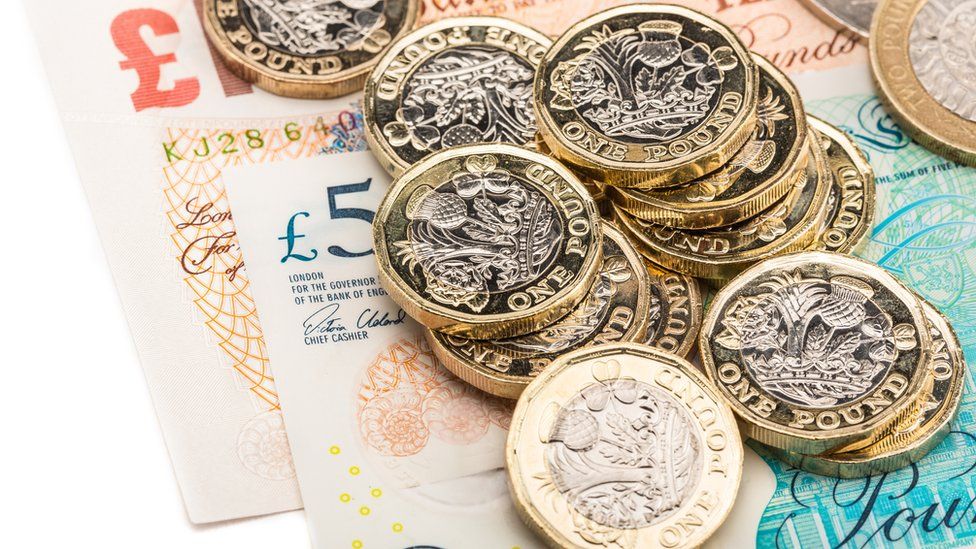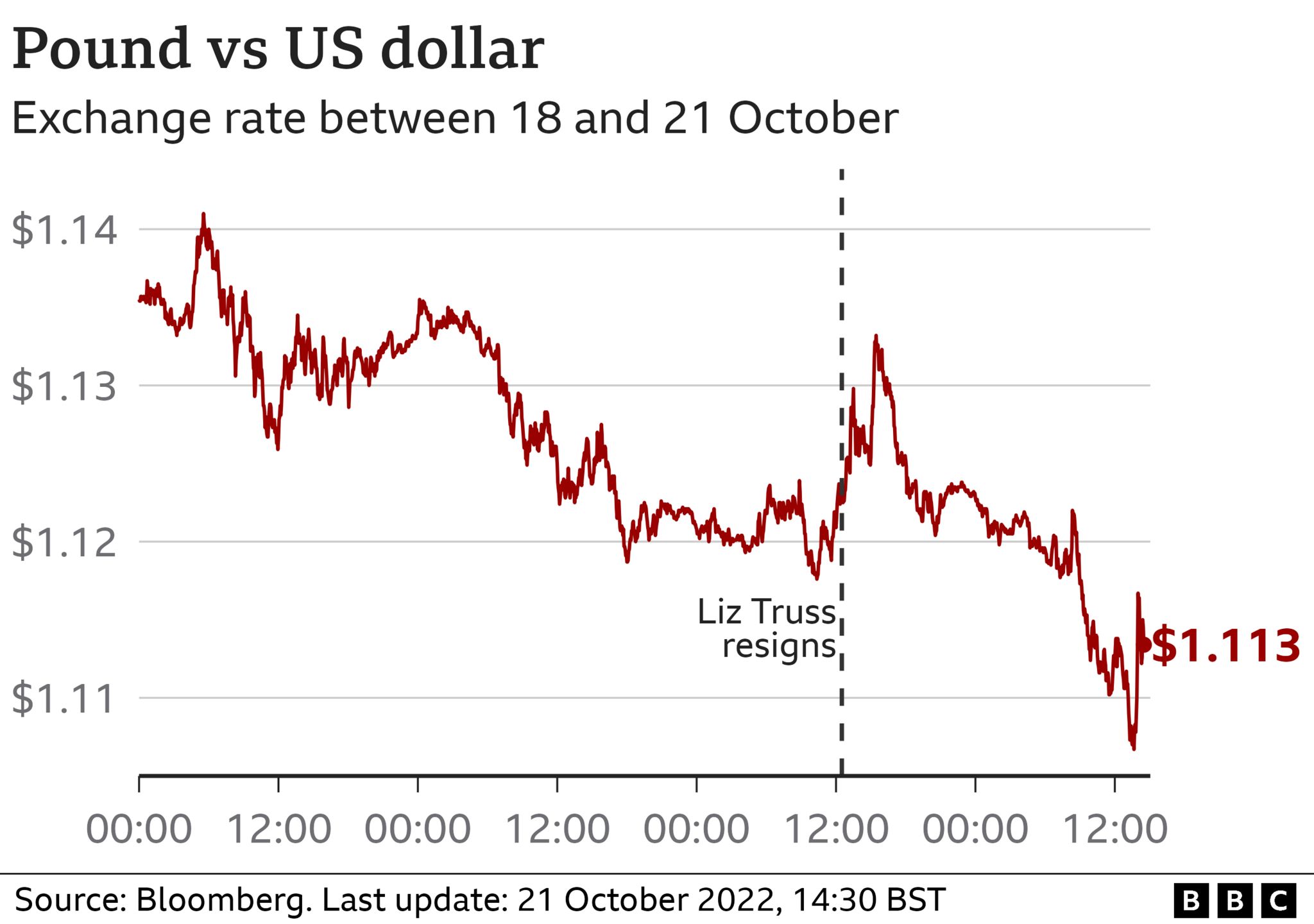The pound fell against the dollar on Friday as new figures showed a gloomy picture for the UK economy.
Sterling slipped to $1.11, after rallying on Thursday as Prime Minister Liz Truss resigned.
However, it clawed back losses on Friday evening and was back up to around $1.12 against the dollar.
The volatility in the pound came after official figures showed government borrowing rose to its second highest September on record.
Meanwhile, people are shopping less than they did before the coronavirus pandemic, according to figures from the Office For National Statistics (ONS).
Retail sales fell by more than expected last month, dropping 1.4% and continuing their slide from August, the official figures showed.
The pound’s latest slide comes after a period of volatile trading for the currency.
It plunged to a record low against the dollar last month, while government borrowing costs rose sharply in the aftermath of the mini-budget. Investors were spooked after the government promised huge tax cuts without saying how it would pay for them.
Government borrowing costs also rose slightly on Friday.
A fall in the US dollar against a number of currencies late Friday helped the pound regain some ground.
But Jane Foley, a currency strategist at Rabobank, said much of the pound’s moves are being driven by investors reacting to political and economic uncertainty in the UK as well as the negative economic data.
“While sterling rallied yesterday on Truss’s resignation, I think investors have realised today that it’s not a guarantee that we’ll get a market-friendly outcome from the Conservative leadership contest,” she said.
The Chancellor, Jeremy Hunt is due to announce plans for spending and tax on 31 October in his economic plan, which the Treasury confirmed was set to go ahead, although there are reports it could be delayed due to the leadership race.
Ms Foley said this uncertainty was also weighing on the pound.
“The longer the uncertainty continues, the worse it’s going to be for the markets.”
Why does a falling pound matter?
A fall in the value of the pound increases the price of goods and services imported into the UK from overseas – because when the pound is weak against the dollar or euro, for example, it costs more for companies in the UK to buy things such as food, raw materials or parts from abroad.
A weaker pound can push rising costs higher as well if companies choose to pass on higher prices to customers. For people planning a trip overseas, changes in the pound affect how far their money will go abroad.


UK, Italy and Japan team up for new fighter jet
Rishi Sunak is set to announce a collaboration between the UK, Italy and Japan to develop a new fighter jet that uses artificial intelligence. The prime minister says the joint venture aims to create thousands of UK jobs and strengthen security ties. The nations will...
Santander UK fined £108m over money laundering failings
Santander has been fined £107.8m over "serious and persistent gaps" in its anti-money laundering controls which opened the door to "financial crime". The financial watchdog said the bank "failed to properly oversee and manage" systems aimed at verifying information...
Lebanon fails to elect new president in ninth electoral session
Lebanon's divided parliament failed for the ninth time to elect a successor to former president Michel Aoun, extending the power vacuum ― the country has been without a president and been ruled by a caretaker government with limited powers since May. The parliament...
Submit your event
We will be happy to share your events. Please email us the details and pictures at publish@profilenewsohio.com
Address
P.O. Box: 311001 Independance, Ohio, 44131
Call Us
+1 (216) 269 3272
Email Us
Publish@profilenewsohio.com

